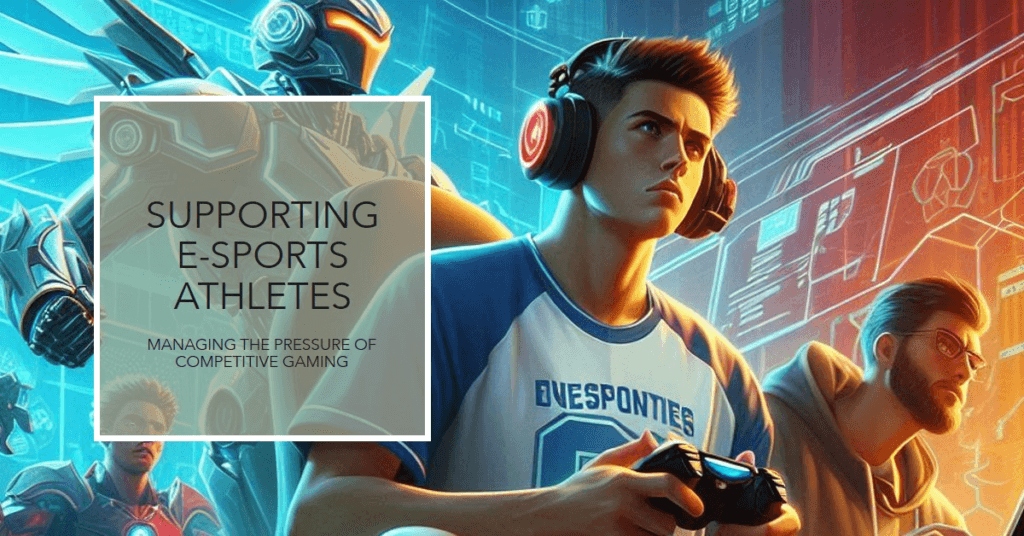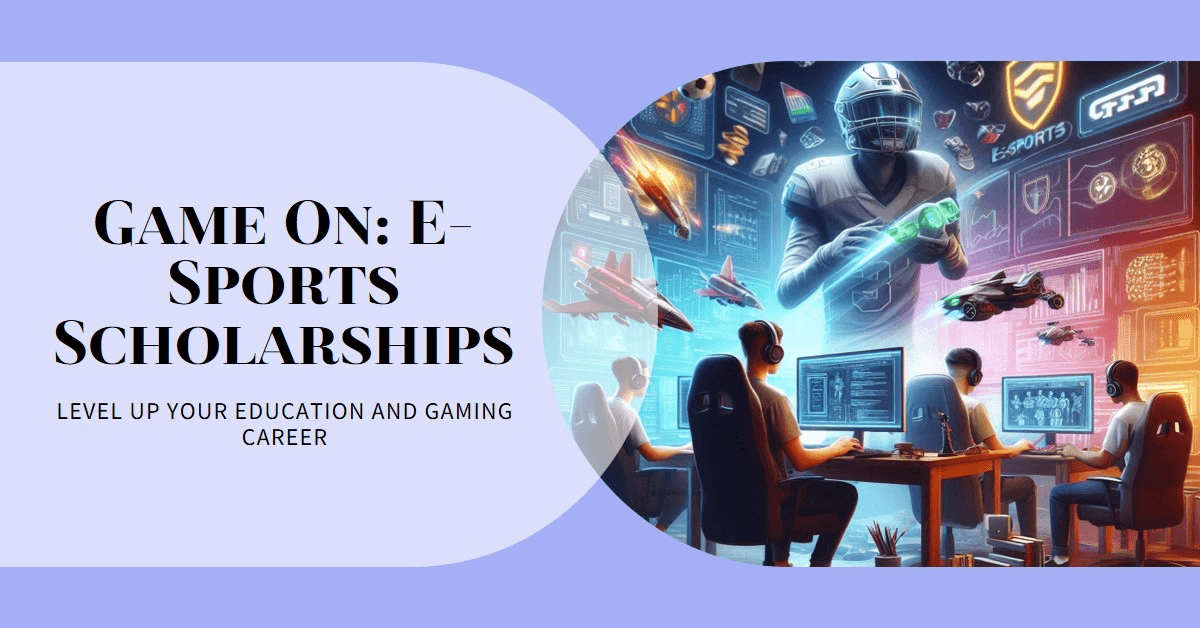In recent years, the world of e-sports has grown from a niche community into a global phenomenon, attracting millions of fans and generating billions of dollars in revenue. This explosive growth has caught the attention of universities, which are now increasingly offering scholarships to e-sports athletes. As institutions of higher education embrace competitive gaming, the landscape of both academia and professional gaming is being transformed in profound ways. This article explores the rise of e-sports scholarships, how they are changing higher education, and what the future holds for students pursuing careers in gaming.
The Rise of E-Sports Scholarships

E-sports, or competitive video gaming, has rapidly evolved into a legitimate and highly lucrative industry. Major tournaments now draw viewership numbers comparable to traditional sports, with millions tuning in to watch professional gamers compete in games like League of Legends, Dota 2, and Over watch. As e-sports have gained mainstream recognition, universities have begun to see the value in cultivating talent in this burgeoning field.
The first e-sports scholarships were introduced in the United States in the early 2010s, with universities like Robert Morris University Illinois leading the charge. Since then, the trend has spread across the country and beyond, with hundreds of universities now offering scholarships to e-sports athletes. These scholarships typically cover tuition and other expenses, much like those awarded to traditional sports athletes.
For universities, offering e-sports scholarships serves multiple purposes. It allows them to tap into a growing demographic of students who are passionate about gaming and see it as a viable career path. It also helps institutions stay relevant in an increasingly digital world, where video games are a significant cultural force. Additionally, by establishing competitive e-sports programs, universities can attract media attention, sponsorships, and new revenue streams.
Changing the Landscape of Higher Education

The introduction of e-sports scholarships is having a significant impact on higher education. For one, it is challenging traditional notions of what constitutes a sport and who deserves athletic scholarships. In the past, athletic scholarships were reserved for students excelling in physical sports like football, basketball, or soccer. Now, students who demonstrate exceptional skill in video games are being recognized and rewarded in the same way.
This shift reflects a broader change in how society views gaming. Once dismissed as a frivolous pastime, gaming is now recognized as a legitimate and competitive discipline that requires skill, strategy, and teamwork. Universities are increasingly acknowledging that the skills developed through e-sports—such as critical thinking, problem-solving, and collaboration—are valuable and transferable to other areas of life and work.
Moreover, e-sports scholarships are democratizing access to higher education. For many students, traditional sports scholarships were out of reach due to physical limitations or a lack of interest in conventional sports. E-sports scholarships open up new opportunities for a different segment of the student population, providing a pathway to higher education for those who may not have had access otherwise.
The presence of e-sports programs on campus is also contributing to the diversification of academic offerings. Many universities are now developing courses and degree programs focused on various aspects of the gaming industry, from game design and development to e-sports management and marketing. This interdisciplinary approach is preparing students for careers in a rapidly growing industry that encompasses not only professional gaming but also game development, broadcasting, event management, and more.
The Future Prospects for E-Sports Athletes

For students who pursue e-sports scholarships, the future holds a range of exciting possibilities. While some may go on to become professional gamers, competing in major tournaments and earning significant prize money, others may find careers in the broader gaming industry or related fields.
The professional gaming circuit is highly competitive, with only a small percentage of players making it to the top levels. However, the skills developed through collegiate e-sports programs can open doors to various careers. For example, students may become coaches, analysts, or commentators within the e-sports ecosystem. Others may transition into roles in game design, software development, or digital marketing.
Furthermore, the popularity of e-sports is driving demand for professionals with expertise in areas like event management, broadcasting, and content creation. As universities continue to develop e-sports-related degree programs, graduates will be well-positioned to take advantage of these emerging opportunities.
The rise of e-sports scholarships also has implications for the broader sports industry. As e-sports continue to gain legitimacy, we may see increased collaboration between traditional sports organizations and e-sports entities. Already, major sports leagues like the NBA and NFL have launched their own e-sports initiatives, and universities are likely to follow suit by integrating e-sports more fully into their athletic programs.
Challenges and Considerations

While the growth of e-sports scholarships is exciting, it also presents challenges for universities and students alike. One concern is the intense pressure that can come with competitive gaming. Just as in traditional sports, the demands of maintaining a high level of performance while balancing academics can be overwhelming for student-athletes. Universities must ensure that they provide adequate support systems, including mental health resources, to help e-sports athletes manage these pressures.
Another consideration is the rapidly evolving nature of the gaming industry. The popularity of specific games can fluctuate, and the skills needed to succeed in e-sports may change as new technologies and platforms emerge. Universities must remain agile and responsive to these changes, continually updating their programs to stay relevant.
Finally, there is the question of inclusivity. While e-sports are generally more accessible than traditional sports, there are still barriers to entry, including the cost of gaming equipment and internet access. Universities offering e-sports scholarships should strive to make their programs as inclusive as possible, ensuring that students from diverse backgrounds have the opportunity to participate.
Conclusion
The growing trend of universities offering scholarships for e-sports athletes is reshaping the landscape of higher education and the gaming industry. As e-sports continue to gain recognition as a legitimate and competitive discipline, more students are being drawn to the opportunities these scholarships provide. This shift is not only expanding access to higher education but also preparing a new generation of professionals for careers in a rapidly growing industry.
While challenges remain, the future of e-sports in academia looks bright. As universities continue to develop their e-sports programs and integrate gaming into their academic offerings, the line between traditional and digital sports will continue to blur. In this evolving landscape, students who pursue e-sports scholarships are poised to become pioneers in both the gaming industry and the broader world of professional sports.
#epicinfinite #epicarticle #epicblog
How do you see the impact of e-sports scholarships on higher education and career opportunities? Share your thoughts in the comments below!










